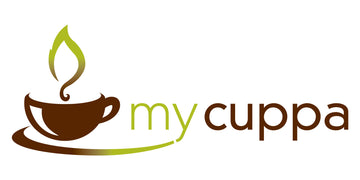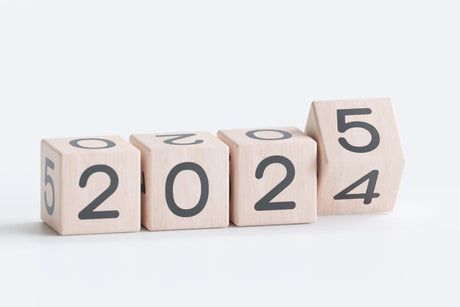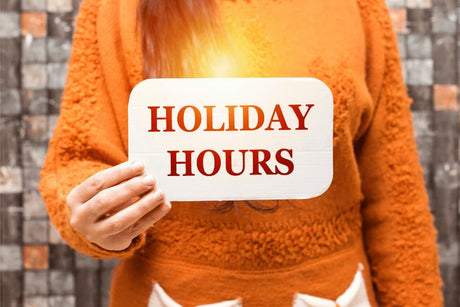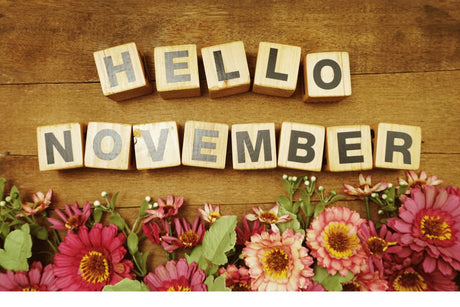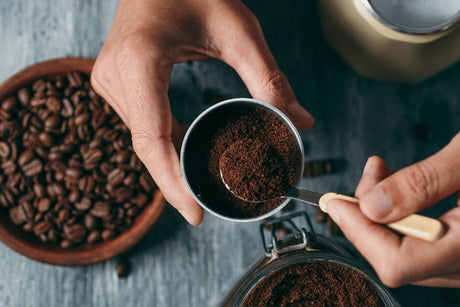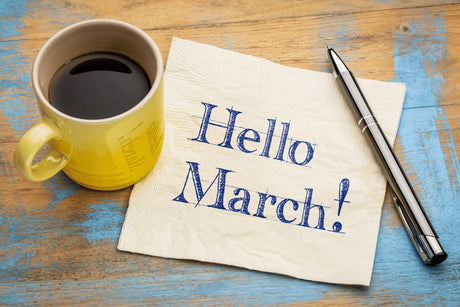“Any tool can be used for good or bad. It's really the ethics of the artist using it." - John Knoll
mycuppa August 2021 Newsletter
With many parts of Australia enduring short or more extended lockdowns over the last month, we have certainly seen elevated order levels. Still, it's nowhere near the wild spikes and crazy rollercoasters from the previous year.
On the surface, Freight networks are avoiding the chronic, protracted jams so often experienced last year. Still, there will always be areas where transit times take longer, especially during lockdowns.
Delivery agents are telling us they are continuing to process higher volumes of parcels, so perhaps things are more efficient or scalable now, but the only truism in parcel logistics is that an imminent disaster is hiding just around the corner.
One aspect has become glaringly obvious – general delivery standards continue to decline as agents are either rushed or lazy and not even trying to deliver parcels, instead forcing receivers to collect physically.
It's a really frustrating issue happening across both AusPost and Sendle. Still, it seems AusPost has dropped their standards more dramatically recently as they continue to push more of the parcel delivery last mile work out to sub-contractors in ongoing efforts to bust their highly militant, Unionised workforce.
It's common for contractor delivery agents to be compensated based on metrics that do not correlate with service quality or customer experience. When people lack motivation to perform, they may resort to cheating.
So contract delivery agents are more frequently failing to try and deliver parcels to the receiver's door because it's a lot easier to drive a van along the street, sit for a short while to play with a phone, and then go back to either an LPO or a collection point and drop off a load of parcels.
In effect, they are gaming a system when parcel delivery companies don't care about customer satisfaction - that's right, they can get away with lousy performance by hiding behind the sender. With just a few providers, there's no real competition and a massive base of captive customers called merchants that can only go somewhere.
Unfortunately, calling or emailing us to complain about why your parcel wasn't delivered as requested to your doorstep won't help, I'm afraid – all of the parcel delivery companies stopped listening to merchants long ago; the truth is they never heard in the first place, and they remain a law unto themselves. The only way to beat poor freight service is to boycott their shipping brand by selecting an alternative. Please don't believe any retailer has power or influence over freight providers; it's impossible.
Full steam ahead.
Interestingly, Australia's economy keeps powering and growing despite all the lockdowns. It seems at odds with the narrative peddled by media organisations claiming businesses everywhere are on their knees (which I'm sure there are valid cases and situations, especially in hospitality, education, event management, travel and entertainment, so this is not an attempt to trivialise those that are doing it tough).
With all the negative news published since the pandemic, it would be nice to see some positive signs that not everything is failing in the economy.
Suppose you live in Melbourne or, for that matter, any of the other capital cities in Australia. In that case, there are constant reminders that things appear quite busy – roads are congested (except in CBDs), and there is also the never-ending stream of too many large trucks jockeying for a temporary parking space on roads around the industrial estates - all day, every day, waiting to get into a business loading area.
We can see that every business in our industrial estate and the commercial districts nearby is running flat out and has done so since the pandemic started; even during Melbourne's strict Stage 4 lockdowns and Ring of Steel in 2020, these businesses were still running.
According to the company owners I speak with within our area, many need help to keep up with demand and the large companies across the road from us are so busy they need to work every weekend.
Our entire industrial area looks like boom time; there's no street parking when you could play cricket on the roads two years ago. Even Melbourne's declining suburban strip shopping areas have experienced a thriving growth spurt after years of increasing vacancies; the tide has turned outside the CBD.
A once reliable indicator of the economy was commercial property transactions, not so much the office space segment, which is still primarily contracted, but the industrial and semi-industrial areas where most goods we purchase are processed.
Our region has only a few warehouses for sale or rent despite the number of warehouses in the estate more than doubling in the last five years. NeighboringNeighboring industrial estates are experiencing similar capacity challenges, making the entire industrial segment across Melbourne far tighter than the residential market.
After spending two years trying to buy another warehouse nearby, it's a similar story to some segments of the residential market – limited by no stock. Maybe the owners of warehouses are hanging on for rapid capital gains to match the overall property market. Still, there's also a good reason that most commercial renters are reluctant or terrified to think about moving with no choices. The industrial market has frozen.
Coffee prices surge.
We had mentioned it several times throughout the year but still needed to contemplate how quickly coffee prices would rise.
In February, there was a near-drought in Brazil, affecting the growing conditions of the world's largest producer in an already off-cycle season; then came the eight-week complete shutdown in Colombia, the world's #2 arabica grower and finally, Brazil suffered the most severe frost since 1994 on July 20th, destroying more than 20+% of next season's crop.
The response to the series of significant shock events has been swift and ruthless, with the global coffee index almost doubling since the start of 2021, although it's retreated slightly but still up around 60% since the beginning of this year.
There's now a mad scramble inside the coffee industry - prices have gone wild, and we are predicting a minimum $2 per kilo hike for the remainder of the year and into the 1st quarter of 2022.

August 2021 Secret Label
This month's Secret Label is all about jaffas, those sweet, solid, orange-flavoured chocolate balls of deliciousness.
We've gone for a "coating" effect and you will taste the beautiful chocolate long after the cup has finished - tempting you for a second.
Plum, berries, orange, and strawberry flavours are complemented by rich cocoa and black tea, finished with brown sugar and caramel sweetness.
There is something rather special about pairing orange with milk chocolate.
The creators of jaffas knew this, and it's a delicious contrast between the sweetness of both elements.
We added a few other notes like plum, caramel and some berries to give it added vibrancy.
We love the silky smooth sweetness that builds in the cup.

Lazy coffee marketing - abusing the term "ethical"
Irrespective of your beliefs, we all have various emotional triggers around ethical concepts.
Sometimes, our desire for socially conscious alternatives or negative customer experiences drives us to make a change.
It's not a new trend, and according to marketing research firms, consumers have been making these sorts of choices for almost 50 years, although to some degree, activism has been on the rise in recent times.
As a modest share market investor, I tend to focus my small investments on themes that resonate with my personal views on the economy and environment; whether it returns the highest profits (or, in some cases, losses) doesn't really matter as the strategy is driven by a conscious desire to do good for the longer term which sometimes means avoiding investing in companies that do the wrong thing - like retaining JobKeeper handouts when their profits increased or if Financial organisations have been caught charging fees for services that were not provided. Engaging in such behaviour is morally wrong.
A few months ago I drafted a "Roaster's Rant" about how every man and his dog trying to flog coffee all fell into the same stupid hole by over-using the term "ethical" in their marketing.
But I decided not to publish this rant as it made several harsh points that nobody was interested in hearing at the time, given the ongoing negativity generated by the battle to survive the pandemic.
However, a recent article by Ever Meister in the famous US online cultural blog Salon managed to fire up the Roaster's Rant again, as everywhere we look, there are far too many lazy, patronising and pathetically dishonest claims being made by players of every size in desperate attempts to prove they are doing something different from the rest of us when they seek your undivided attention to buy their product because it's somehow "ethical".
It is often effortless for people to declare themselves ethical without providing concrete evidence to support their claims. Similarly, some individuals may claim to be honest simply because they say so, but wise individuals generally view such declarations as red flags that indicate these people are not trustworthy.
This lack of explanation in clearly describing how and why a product is more ethical than comparable products (including everyone else) allows sellers to get away with bold, unsubstantiated claims.
So let's take a peek behind the stage curtain and peer into the Trump-like falsies that continue to plague the coffee market, not only here in Australia but all across the globe.
Context, please
It's interesting to note that coffee is seen as a "luxury", yet raw or green coffee (unroasted) is traded as a commodity - perhaps that's an essential insight into why there's so much distortion.
Coffee farmers are some of the poorest humans on earth, with many living below the poverty line, especially in smaller regions like Africa and some Central American countries.
Returns from coffee farming have been so low over many years that many farmers have abandoned coffee. With increasing challenges from the unpredictable weather patterns caused by global warming, it's no surprise that most smallholder coffee farms (which make up around 85% of the worldwide coffee supply) are owned and run by farmers 50+ years of age.
When you consider the average coffee farmer is over 50 with many younger generations seeking higher-paid jobs elsewhere, it's not unlike Australia's decimated dairy industry - irreparably damaged by the greedy monopolistic supermarkets through predatory, unsustainable pricing of cheap milk at the expense of dairy farmers economic living standards.
In the past 5 to 6 years, significant changes have occurred in the more technologically advanced and mature coffee-producing countries such as Costa Rica and Panama. Unfortunately, some coffee plantations have been converted into real estate developments, which has resulted in a disconnection between the concept of "ethics" and the coffee industry. This means that the issues of poverty and slavery are not adequately addressed, and coffee farmers are suffering as a result.
As we are just over halfway through 2021, the global coffee price index has doubled in the last six months. The market power has well and truly shifted significantly into the hands of sellers for what is likely to be the first time in 7 years, with coffee farmers and exporters being reluctant sellers and disinterested in trade contracts as they continue to hold out for higher pricing.
Some may call this payback or retribution that is long overdue after such an extended period of low and questionably unsustainable pricing, and the recent rising market may appear as a basic correction and re-balancing of the distributions in profits throughout the supply chain rather than specific profit-taking in any segment.
Why is it so easy to abuse "ethical."
Twenty years ago, coffee marketing was all about images of beautiful people and gorgeous surroundings (and in some countries, this advertising style still exists today); however, the modern coffee marketer's most potent weapon, it seems, is a lazy term called "ethically sourced".
Why is it so lazy? Well, for a start, it's too easy to throw "ethically sourced" out there, a feel-good hook that can rarely be qualified or challenged. In other words, you can say whatever you want and get away with it as there's no "ethical police" to catch them out.
Most don't even bother to explain what they mean when they claim "ethically sourced" and instead borrow a few logos from Google, thinking that will adequately fool the punters. It's the 5-minute marketing hack to success in the coffee industry.
How about a new concept for reality TV? Picture cameras follow coffee salespeople as they navigate through the streets and into warehouses where the same coffee we all buy is traded using supply chains that have been in place for over a century.
Perhaps when they claim "ethically sourced", they occasionally pay their bills on time (sorry, that's a Hospo in-joke) or at all.
It's just one of many carefully constructed smoke screens to protect over-priced retail products from being revealed as nothing other than plain and basic commodity goods enrobed in alluring, spanky-pants packaging.
The truth is that almost nothing in the coffee industry is "ethically sourced" in the purest sense, as many vital players require a "clip" in multi-faceted supply chains, and the myth of coffee supply being akin to slavery is an outdated and invalid assumption.
Coffee-induced poverty traps are not how the modern supply chain functions, yet deceptive marketers are preying upon consumer consciousness by harking back to a long-lost past.
I've been involved in coffee for a long time, and despite all my contacts and knowledge, I don't know of any sellers of raw coffee that are regarded as "unethical" - they all have to follow the same process in trading coffee, uphold high standards in quality and risk management and let's remember for a moment they have to deal with farmers that have immense pride in their crops.
The suggestion of "desperation and exploitation" within coffee supply chains is a carefully orchestrated emotional trigger.
There's little opportunity for exploitation as no extreme disparity exists between the buyer and the seller. Some argue that's precisely what's happened over the previous 15 years. Still, modern coffee farmers are much better informed in understanding the highly volatile nature of global coffee pricing, differentials and how to value their prized crops.
It's a complex array of relationships and influences driven by accessible market movements rather than forced exploitation.
Not all coffee certifications have a real purpose.
With so many players involved in coffee supply chains, they all play an essential role in managing the inherent difficulties and risks of trading goods unseen and unverified from remote and often dangerous countries.
These significant risks are the same reasons why participation levels in direct importation are well and beyond the reach of almost all coffee companies in Australia except for a few massive players.
When you see coffee brands touting their direct trade credentials, most are stretching the truth by attempting to appear "closer" than they are to the sourcing, just like standing next to someone famous and hoping for credibility. Mostly, it's about generating the unproven claims their coffee is unique and exclusive, and they will undoubtedly try and get away with charging you more for the privilege.
As we have stated before, the FAIRTRADE system is the only trusted ethically sourced program applicable to coffee products.
Even the FAIRTRADE system is just a bare floor price on coffee; if the farming community is lucky, they might receive some support aid like education, etc.
FAIRTRADE certainly does not guarantee a basic level of quality, and this remains a specific area for improvement in the FAIRTRADE system as we pay higher premiums for what can be rather average or mediocre quality coffees.
So, it raises one of the more deceptive and grotesque attractions for the grand illusion of "ethical" - that paying higher prices naturally infers a more ethical product.
Unfortunately, the price of a coffee has zero relationship to ethics; in fact, it's by far the most manipulated variable sellers have in their marketing toolkit by claiming the farmers are paid more and consumers are yet again fooled into paying higher premiums when there's no assurance or guarantee those premiums are being passed back along the supply chain. Nobody is holding them to account.
Everything else is just a hollow promise or worthless certification. The biggest con is supermarkets and large retailers hiding behind the toothless Rainforest/UTZ certification as it provides them with a "feel good" logo for literally zero effort and almost zero net cost.
Only the FAIRTRADE system measures and validates the flow of goods from the farmer to exporters, importers, brokers, roasters and the end consumer sale..... it's painstakingly tracked right down to the kilo (with the emphasis on pain).
The Rainforest Alliance/UTZ shambles is still trying to work out how to put systems together for tracing purchases - in the last 12 years, they still need to get their act together. Rainforest Alliance also don't have auditors on the ground here in Australia who physically visit coffee companies to verify purchase records and sales invoices, so that means it's open to easy "bait and switch" routines by participants.
Many coffee companies in Australia don't play in the FAIRTRADE system because they can't cheat or rort this system in the same ways it's possible with other certification programs.
Sure, there are plausible excuses like "it's too expensive, too difficult, requires admin effort or not entirely fair for the farmers, but many coffee companies are not prepared to "open their books" to independent scrutiny.
This begs the question: what are they trying to conceal? Claims of "ethical sourcing" and "direct trade" links may be fabricated.
Less than 1% of Australia's 2,500 coffee brands self-import part of their raw coffees, and those that do are the massive players that tend to only purchase cheaply by the container as every cent (or in most cases dollar) saved works out in tens of thousands of dollars more profit. They can afford to take risks and losses that are high stakes.
Even long-established coffee importers get caught with containers of "inferior" or sub-standard coffee they can't sell. Transporting fresh raw coffee is not easy; it has to travel through multiple weather zones, hot, cool, humid, etc., affecting the quality.
Almost 1 in 5 containers of raw coffee landing in Australia have noticeable differences between the pre-shipment and arrival samples. In other words, the trip from origin to Australia will be challenging for coffee quality.
So it's hard to believe there is anything ethical in direct trade sourcing when value-added participants are cut out of the supply chain, and that, my dear readers, in a nutshell, is the only legitimate reason self-importation of coffee exists - to save money by not giving it away to pay intermediaries, 3rd parties and multiple players, it's all about bypassing or avoiding the various "clips" along the supply chains.
The other 99+% of us all use the same import traders, so when small coffee companies claim they are using "ethically sourced" practices, you can see now it's just a marketing ploy that is meaningless and hollow.
Real, genuine, direct trade coffees are almost non-existent these days, so I can't help but laugh every time I see a small coffee brand promoting their imaginary Direct Trade sourcing by making it out to be something unique and authentic.
Very few of them can buy containers of coffee at a time (22 or 44 tons), which is precisely how direct trade works. These small brands have neither the storage space, cash flow or risk profile to support their wild claims of buying directly from farmers - it's just pure fantasy.
Hopefully, the world will soon tire of the "ethical" over-use and see it simply for what it is - a vague feel-good platitude lacking any natural substance or relevance.
